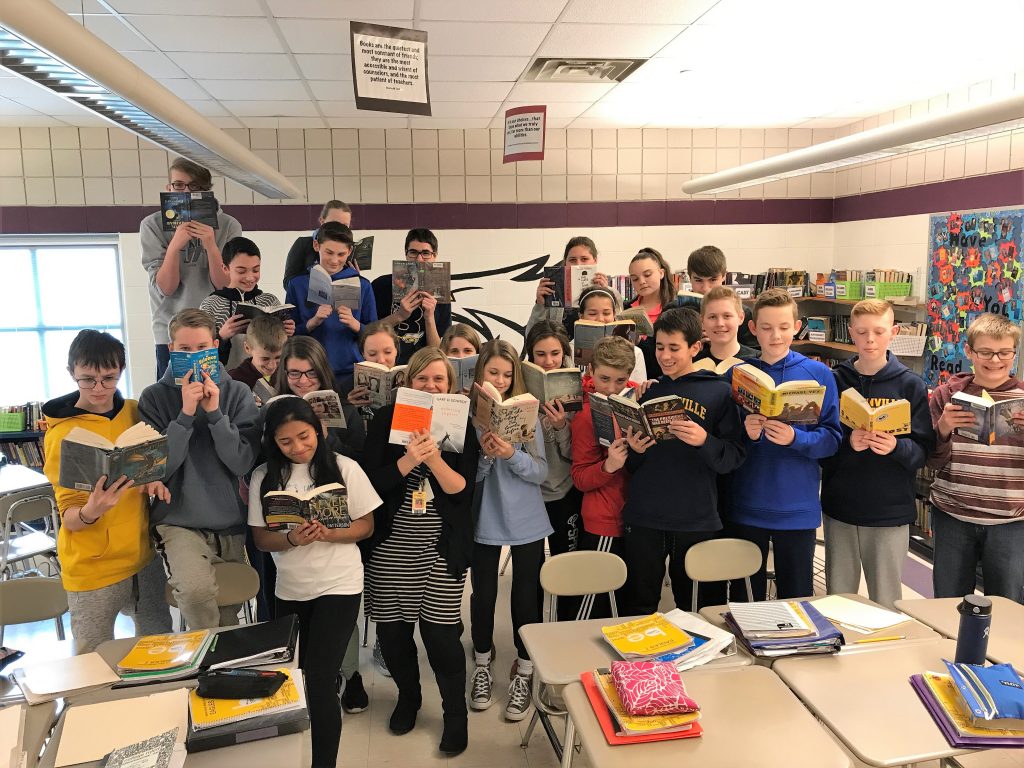
As an English teacher who races from my 8th grade classroom over to Hope to teach a late afternoon composition class, I spend a lot of my time with young people in life’s messy middles: in the midst of adolescence, in the midst of the semester, in the midst of the academic year. When we’re swimming far from shore, it can be easy to lose sight of the mainland, to feel disoriented about what matters or where we’re heading.
Last semester, a quiet student, on her way out the door of our English 113 classroom for the final time, pulled me aside and asked: “Can you send me a list of books, maybe like some of the ones we read, that I could read next? This class reminded me that I like to read.”
In this mid-ish point in the semester, when our minds are on deadlines and to-do lists, when we’ve left behind the coziness of winter but are still waiting on the spring daffodils, an antidote may be remembering the joy that is reading, the beauty of words. We may deserve a gentle nudge to reclaim reading — not just as an academic pursuit, but as a comfort, a safe place, and a window to the world. Reading for the wonder of it.
While one of the strongest predictors of being a frequent, lifelong reader is a child who holds a strong belief that reading for fun is important, statistics show that reading enjoyment declines sharply after age eight, and that kids read for fun less and less as they get older, “with 45% of 17-year-old saying they read by choice only once or twice a year.” Author and teacher Penny Kittle describes a “calamitous drop-off in students’ reading after age 13 and a downward trend in voluntary reading by youth at middle and high school levels over the past two decades.”
In this March is Reading month, those of us engaged in the study and teaching of English can be reminded that we are more than task-masters; we are ambassadors of literature, called to spread the love of reading. In the middle of our syllabi and schedules, we can hold fast to the deep conviction that books matter and that words have the ability to change and challenge us. And that in the midst of overwhelming to-do lists, what we might actually need most is to plunge into a good book.
Maybe one of my former middle school students can speak to this better than I can. In his end-of-the-year reflection, he wrote: “Throughout 8th grade, I’ve learned many different things about my reading, but one main thing is actually caring about the story and theme. When I used to read, I did it just for the grade. Now, when I read books like the Harry Potter series, I actually pay notice to the characters’ emotions, the plot, and the relationship between people. Doing this gives me a larger respect for characters and stories. My newfound respect of stories actually makes reading a nice thing to do in my spare time, so I actually do plan to buy some new books. It may sound pretty nerdy, but I plan to read over summer vacation.”
Thanks to this young man, I’m adding “Leave class as an admitted book nerd” to my list of objectives in every class, at every grade level. And I will cling to his words when I’m mired in the middle and doggy-paddling in the deep end.
March on and read for the joy of it, my friends!